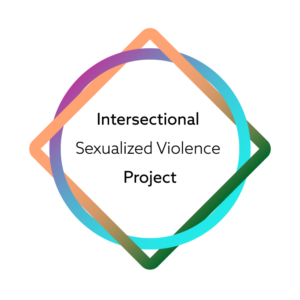*Note: This session has passed. Please view the recording and resources below.
About the Webinar
Join us for an engaging 90-minute webinar to learn about newly developed resources to help prevent and respond to sexualized violence at post-secondary institutions. 
BCcampus collaborated with students, staff, and faculty, and a team of subject-matter experts in the B.C. post-secondary sector to develop these resources. The resources are intended to support graduate, international, and Indigenous students, and they provide foundational training on technology-facilitated sexualized violence. They were developed in partnership with the Ministry of Post-Secondary Education and Future Skills and funded by Women and Gender Equality Canada as part of the Intersectional Sexualized Violence Project.
Content Warning
This webinar deals with topics that may cause trauma, including discussions of sexualized violence. We encourage attendees to practice self-care and access support services as needed. A list of supports is available at the bottom of this page.
Recording and Resources
- Transcript – Intersectional Sexualized Violence Project: New Resource Showcase (PDF)
- Transcript – Intersectional Sexualized Violence Project: New Resource Showcase (Word)
- Slides – Intersectional Sexualized Violence Project: New Resource Showcase (PDF)
About the Speakers
Samantha Matute Arrieta (she/her) is the program lead of prevention services and communications at Ending Violence Association of BC (EVA BC). Samantha is an immigrant and first-generation settler on xʷməθkʷəy̓əm, Sḵwx̱wú7mesh, səl̓ilw̓ətaɬ territories. Sam’s work focuses on communications strategy, social media management, and visual design, and fostering safer workplaces through training, research, development, and delivery. Previously, she worked in the settlement sector in communications and structuring social and civic leadership training for newcomers in B.C. Sam brings a relational, anti-oppressive, anti-racist, and inclusive lens to her work. She finds enthusiasm by sharing space with and learning from people and groups who strive to find solutions for the issues our communities face and ensuring connections are built with purpose.
Robynne Devine (she/her/hers) has been a senior project manager at BCcampus for the past six years. Since 2019, she has managed projects related to sexualized violence, resulting in the release of several key resources. Recently, Robynne has been managing the Intersectional Sexualized Violence project, which is wrapping up in September 2024. Robynne also manages other projects to support the B.C. post-secondary sector.
Jewell Gillies (they/them) is an Indigenous advisor and a Two-Spirit member of Musgmagw Dzawada’enuwx. They are the daughter of Daisy Susan Gillies (née Webber) and Richard Gillies, and the granddaughter of Fanny Wamiss and Stan Webber. Their ancestry and lineage come from the Kwakwaka’wakw People, from Kingcome Inlet and Alert Bay, B.C.
Jewell attended the University of the Fraser Valley’s criminology and criminal justice program, and in 2006 was commissioned as a police officer for the City of Vancouver. Jewell’s passion for supporting historically excluded community members and seeking equity and social justice, centred on education and financial security issues, led them to change professions in 2012. They spent 10 years working in the education system, from K–12 to higher education, and most recently worked as the Indigenous student services coordinator for Okanagan College. They were the executive board chair for Strengthening Connections, the Indigenous student recruitment collective for higher education in B.C. Jewell is also an Indigenous advisor for provincial training programs, working with BCcampus on topics covering sexualized violence and mental health and wellness. Jewell brings a wealth of traditional knowledge from their community and the many Knowledge Keepers, community members, and Elders who have shared with them over the years.
Jewell considers their daughter one of their best teachers and coaches, leading with love, curiosity, and wonder for the world. It is these teachings that ground Jewell in their work.
Meaghan Hagerty (she/her/hers) is the programs manager for the Kamloops Sexual Assault Counselling Centre. She previously worked in Thompson Rivers University’s Sexualized Violence Prevention and Response Office providing survivor support as well as developing and delivering educational programming. She values meeting folks where they’re at and actively applying intersectional, anti-oppressive and trauma-informed approaches in her work. She is continuously learning, aspiring to be a better ally, and looking forward to connecting with everyone at the webinar. Meaghan lives and works as an uninvited settler in Tk̓emlúps te Secwépemc, the traditional and unceded territory of the Secwépemc people.
Matty Hillman (he/him/his) is a counsellor, educational developer, father and muralist. He regularly collaborates with BCcampus on anti-violence and mental health projects. Matty’s scholarship and research interests include sexual violence prevention and response on post-secondary campuses, trauma-informed education, healthy masculinities and critical youth mentorship. His writing can be found in various child and youth care journals and several provincial anti-violence projects. You can find his murals on walls throughout the West Kootenay.
Kaitlyn Zheng (she/her) is the coordinator of project support and open publication at BCcampus. She has been working in open publishing and supporting various OER development projects in the B.C. post-secondary sector.
Support Resources
If you need immediate support, please reach out.
VictimLinkBC: Information and referral for survivors of sexualized violence.
BC Mental Health Support Line: Provides support for mental health and substance use. Please call 310-6789 - no area code needed.
Help Starts Here: Provides over 2,600 service listings publicly-funded or not-for-profit mental health and substance use supports and many articles featuring easy to understand language and curated information about commonly searched topics.
Here2Talk: Connects students with mental health support and is available 24/7 via app, phone, and web.
KUU-US Crisis Line Society: Available 24/7 to provide support to Indigenous people in B.C. Please call 1-800-588-8717.
The First Nations and Inuit Hope for Wellness Helpline: Available 24/7 to Indigenous people across Canada. Please call 1-855-242-3310.
